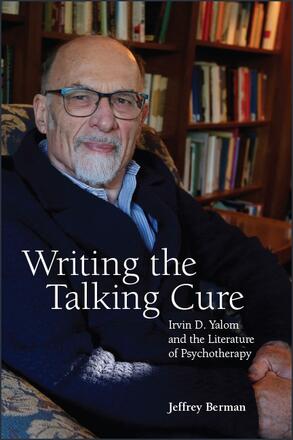
Writing the Talking Cure
Irvin D. Yalom and the Literature of Psychotherapy
Alternative formats available from:
Explores Yalom’s profound contributions to psychotherapy and literature.
Description
A distinguished psychiatrist and psychotherapist, Irvin D. Yalom is also the United States' most well-known author of psychotherapy tales. His first volume of essays, Love's Executioner, became an immediate best seller, and his first novel, When Nietzsche Wept, continues to enjoy critical and popular success. Yalom has created a subgenre of literature, the "therapy story," where the therapist learns as much as, if not more than, the patient; where therapy never proceeds as expected; and where the therapist's apparent failure provesultimately to be a success.
Writing the Talking Cure is the first book to explore all of Yalom's major writings. Taking an interdisciplinary approach, Jeffrey Berman comments on Yalom's profound contributions to psychotherapy and literature and emphasizes the recurrent ideas that unify his writings: the importance of the therapeutic relationship, therapist transparency, here-and-now therapy, the prevalence of death anxiety, reciprocal healing, and the idea of the wounded healer. Throughout, Berman discusses what Yalom can teach therapists in particular and the common (and uncommon) reader in general.
Jeffrey Berman is Distinguished Teaching Professor of English at the University at Albany, State University of New York. His previous books include Writing Widowhood: The Landscapes of Bereavement; Death in the Classroom: Writing about Love and Loss; and Dying to Teach: A Memoir of Love, Loss, and Learning, all published by SUNY Press.
Reviews
"As a psychiatrist who has benefitted enormously not only from Yalom's writings but also from his mentorship, I admire Berman's relationship to his subject. They both write lucidly and imaginatively, inviting the reader to accompany them on a personal journey that is intriguing but intellectually rigorous. Reading this book helps me to better understand Yalom's dual roles—as brilliant psychotherapist/teacher and compelling novelist. Berman's book-by-book examination of Yalom's work illustrates how good therapy involves facing reality, and good fiction involves making stories come alive by resonating with the hard truths of life. He is the perfect guide to Yalom, capturing his wisdom and creativity with respect and clarity. " — David Spiegel, author of Living Beyond Limits: New Hope and Help for Facing Life-Threatening Illness
"This is a convincing celebration of and commentary on one of the most prominent psychotherapists of the last century. For anyone interested in the popularization of an idiosyncratic form of existential psychotherapy for individuals and groups, this will be an important book. " — Murray Schwartz, Emerson College
"In this richly textured book, Berman takes us backstage in a warm and skillful exploration of Irvin Yalom's unmatched contributions as a psychotherapist, author, and educator. We are provided a transparent view of how human healing emerges from our talking, writing, and reading. Berman reminds us eloquently that psychotherapy is, at its essence, the process of human connection and the joint attribution of meaning to experience. " — Molyn Leszcz, The University of Toronto